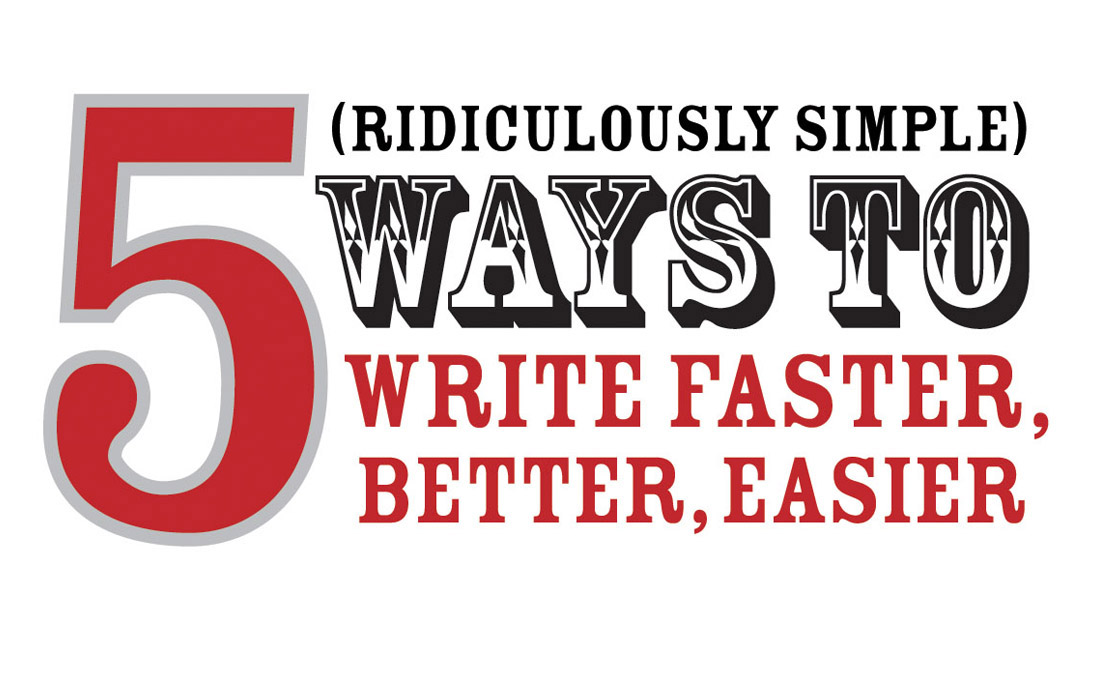Mark Levy Interview (Part 2): Solving Problems Through Freewriting
 Tuesday, June 15, 2010 at 07:22AM
Tuesday, June 15, 2010 at 07:22AM This is part two of my interview with marketing strategist, positioning master and first-class writer, Mark Levy. Be sure to read part one of Mark's interview on "crafting compelling messages."

If Mark's insights have peaked your interest in freewriting, be sure to check out his newly revised book, "Accidental Genius: Using Writing to Generate Your Best Ideas, Insight, and Content, coming out in August." Mark also writes on his blog about creative writing, positioning and more.
OK, Mark, let's continue where we left off– with freewriting.
Let’s hear more about freewriting. Why is it effective? What’s its “secret sauce?”
To explain, let’s go back to a concept I already mentioned: the metaphorical “internal editor.”
Inside each of us is an internal editor that does an important job. It edits what we think, say, and write -- as we think, say, and write it -- so we sound smart, confident, and consistent.
We all need our internal editor. It helps us fit into polite society. There is a time, though, when our internal editor gets in our way.
I’m talking about those times when we need an idea unlike any we’ve ever had, or we want to solve a problem that we can’t solve using our standard thinking, or we want to write a book or post that says things most other people aren’t saying.
In instances like those, our editor can hurt us. How?
Since the editor wants us to always look good to others, it’s going to tell us we’re being stupid or impractical if we try thinking thoughts that are radically different for us. It’s going to order us to push aside the new and go with the familiar. It’s going to anchor us to what’s not working.
Understand, our editor believes it’s helping us. It thinks it’s protecting us by steering us away from untested ideas. But, again, without letting our minds venture into those novel places, we’re just going to get our standard ideas over and over again.
Freewriting forces the editor to recede, at least temporarily. By following a few simple freewriting rules, our minds can freestyle. They can go playful and create ideas and prose that’s a genuine departure for us.
How do you do freewriting?
Set a timer for, say, ten minutes, and get a pen and paper, or open a blank document in your computer.
You’re now going to write about some situation you have in mind by following a few guidelines.
You’re going to write as fast as you can, and you won’t stop for any reason – until the timer tells you you’re finished.
You needn’t show the work you’re about to do to anyone, so feel free to be bold, honest, and experimental.
Use the paper or screen to talk to yourself about the situation in mind. Write down anything that comes to you, including the people involved, the stories and images that flash in your mind, the bottlenecks you’re experiencing, the lessons you’ve learned, and so forth.
Don’t, however, feel you have to write about the situation in some comprehensive way. What you want to write about are those spots that have energy for you.
While doing this writing, you’re also allowed to digress as much as you’d like. If you write off topic, fine. In fact, going off topic can be helpful – especially if you find yourself thinking the same ideas over and over again. Digression breaks your patterns. It helps you see things from new perspectives and combine thoughts that don’t normally go together.
After ten minutes, look over what you wrote. You may have some ideas and prose you can use. If not, set the timer again and approach the subject from a different angle.
Do as many sessions as you’d like, over the course of an hour, or a day, or a few days, until you get what you need.
I read the first edition of your book, “Accidental Genius,” and it really got me to use freewriting regularly. What are all the ways people use the technique?
People use it to think through any situation you can imagine. They use it for business and private life. They use it to plan complicated organizational strategies, and to plan a weekend vacation. They use it to write eighty thousand word books, and eighty word blog posts.
This has been great. Any final words?
Don’t think of freewriting as writing. It’s a way of watching yourself think. It helps you get at the experiences and thoughts you already have, and helps you use those as fodder for new perspectives and ideas.
If you experiment with it and use it often enough, good things can’t help but happen.
Thanks, again, Mark for taking us inside the world of freewriting. I hope readers start tapping into its many benefits.
P.S. I had the privilege of reading Mark's manuscript for the revised version of "Accidental Genius." The book is so great I was pleased and honored to endorse it.



Reader Comments (1)
Thanks again for hosting the interview.